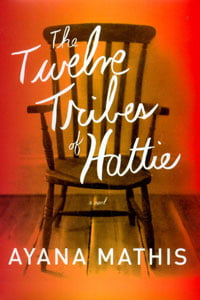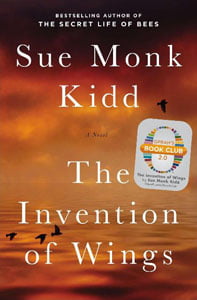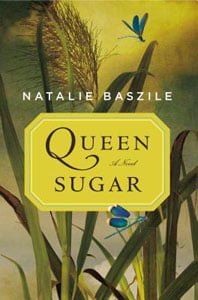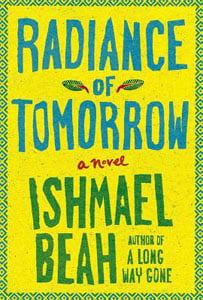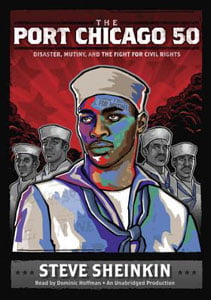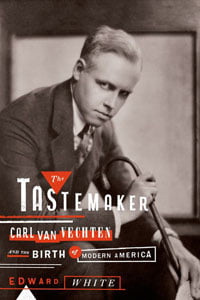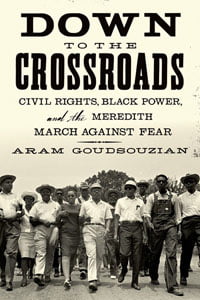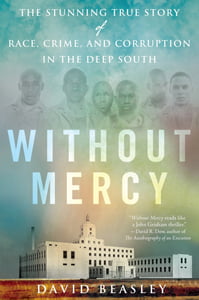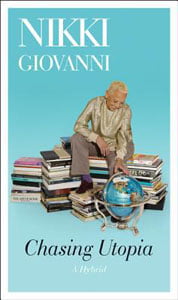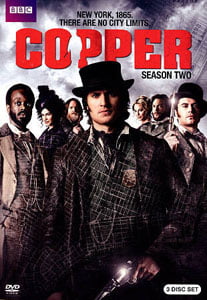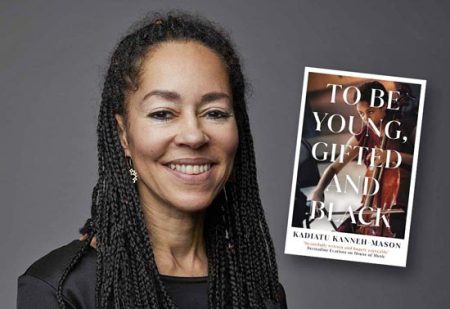Book Bag – February 2014
reviews by Sharon L. Shervington
Black History Month: Expanding the Parameters, Narrative of American History
With increasing and welcome frequency, chronicles of the history of black people in America are expanding, unveiling perspectives of enslaved and indentured women: stories from the Pacific Northwest in the mid-19th century, and cases like the tragic miscarriage of justice in which a record number of men were executed in the Georgia electric chair in 81 minutes—deliberation and sentencing took four hours.
Perhaps the most shocking story you’ve never heard is that of the Port Chicago Mutiny (see review under “non-fiction”) during the unrelenting segregation of the armed forces during World War II. In a cataclysmic explosion more than 200 black soldiers whose job it was—without any training—to load thousands of tons of often-live ammunition onto ships to supply white soldiers in the Pacific Theater, were killed instantly.
When survivors of the explosion refused to continue work, again without training, and with no black officers, they faced court-martial and were then sentenced to lengthy prison terms. This case, which became a cause célèbre at the time, finally is getting the attention it deserves.
Since last year around this time with the publication of the superb The Twelve Tribes of Hattie (by Ayana Mathis; Knopf), both fiction and nonfiction accounts covering African Americans seem to have increased. There are new books in everything from the years before the American Revolution to legal cases in the 1940s and 1950s, to a compelling fictional account of the Grimke sisters, who are widely acknowledged to be foremothers of the abolition and women’s rights movements in the early 19th century. It’s a blossoming that hopefully will continue.
The book about the Grimkes is the latest from Sue Monk Kidd, The Invention of Wings, which has rocketed to the number two position on the bestseller list. This beautifully written and researched novel follows the lives of Sarah and Nina Grimke—along with an enslaved girl named Handful who is given to Sarah on her 11th birthday—who began their lives as daughters in a wealthy, conservative slave-holding family in Charleston.
From an early age, Sarah has witnessed the in-your-face violence of enslavement, but she is a staunchly ethical girl who wants to be a lawyer like her father and brothers. She is the smartest and most intellectual member of the family, but her gender leads to her betrayal by her father, who ridicules her for her ambition, along with the whole family. This leads to a deep depression which emerges at times throughout her life and breaks her confidence. Some of her only solace comes from Handful, whom she tries to free—for the first time, almost upon being given ownership.
The two share many characteristics, from high intelligence to compassion, shrewdness, and above all, a thirst for freedom. Sarah’s and Handful’s mothers, as different as night and day, also figure prominently.
As Sarah is forced out of her comfort zone by moving to the North, a move forced by her difficult mother, she slowly begins to develop wings. How the three women gradually come into their own, at last breaking all the rules, is at the heart of this story. (Viking; $27.95; 373 pages)
The delicious yet disturbing Worthy Brown’s Daughter from Phillip Margolin, a prolific author best known for his contemporary thrillers, goes in a different direction. It tells the story of an enslaved man and his daughter who agree to move to Oregon, with the promise that if they set up a homestead with the enslaver, noted and corrupt attorney Caleb Barbour, that he will free them. He reneges on his promise, which leads to murder. A brilliant young attorney, Matthew Penny, who is grief-stricken after the loss of his beloved wife, takes Worthy Brown’s case after the man is accused of murder.
This is very much a legal thriller, with some of the best scenes taking place in the courtroom. But it is also more character-driven than other works by Margolin, with several other memorable portrayals of Worthy’s daughter, Roxanne, a wealthy father (also a lawyer) and daughter who take a liking to Matthew, and the powerful and determined “fallen woman,” who will stop at nothing, even perjury, to get what she wants. A bonus is the way that Mr. Margolin shows us how law and justice do not necessarily coincide. (Harper; $26.99; 345 pages)
Ishmael Beah took the publishing world by storm in 2007 with the release of his harrowing memoir of civil war in Sierra Leone and the fate of child soldiers. His eagerly awaited first novel, Radiance of Tomorrow, will appeal to fans and to anyone with an interest in the complexity of wars and politics in African countries.
This is a convincing portrait of a very different culture, but it elegantly portrays both suffering and a joy in life’s simple pleasures that have universal resonance. Benjamin and Bockarie, two long-time friends from the same small village, Imperi, reunite after several years of separation and hardship in the aftermath of the wartime destruction of their village, and, much worse, the loss of their children. Not out of danger by any means, as more villagers return they attempt to rebuild with great courage amid numerous obstacles. This is a tightly written, haunting effort. (Sarah Crichton Books, FSG; $25; 242 pages)
From the same publisher comes Hour of the Red God, a very unusual thriller set in teeming, decadent Nairobi during the turbulent elections of 2007. Detective Mollel is a member of the Maasai tribe who has left that life behind to come to the big city. Although not necessarily welcomed by his colleagues, when a girl from the Maasai is found dead, he cannot walk away from a case that might involve conspiracy at the highest levels of power. This is an original and suspenseful debut. (By Richard Crompton; $26; 290 pages)
Queen Sugar introduces Natalie Baszile, a graduate of the MFA program at Warren Wilson who, with her main character Charley Bordelon, adds to the traditionally under-represented ranks of female African American protagonists and authors.
Charley and her daughter Micah, 11, move to rural Louisiana from a much easier life in Los Angeles, after her father leaves her an 800-acre sugar cane farm. But it comes with stipulations. Charley will get full ownership of the property only if she farms it; otherwise it reverts to charity. In a culture dominated by males, and white males at that, Charley struggles to make alliances that will allow her to survive and thrive.
Set against a backdrop of difficult cross-generational family relationships, this is a smoothly developed story with significant bittersweet elements. (Pamela Dorman Books; $27.95; 366 pages)
Nonfiction
The Port Chicago 50: Disaster, Mutiny and the Fight for Civil Rights, though written for a young adult audience, should nevertheless be on every bookshelf. This book illustrates—as much as anything can—the disconnect between America’s traditional rhetoric and reality regarding freedom and equality.
The deaths of more than 300 men and a similar number of severe injuries can be laid at the feet of racist officers and officials, who after the deadly explosion chose to court-martial the very people their policies exploited and killed.
In addition to a more thorough account than has previously been available, the role of Thurgood Marshall is discussed, highlighting the abuse—in this and many other cases involving murder and maiming—that black troops were subjected to, with virtually no response by the armed forces leadership, and even Cabinet members, no matter who the appeals came from.
There are original interviews from men who were there; the book is also an excellent jumping off point for an ongoing discussion of American policies at war as well as ethical standards and behavior. (By Steve Sheinkin; $19.99; 200 pages)
Other notable books for the month are Down to the Crossroads: Civil Rights, Black Power and the Meredith March Against Fear, which follows James Meredith’s short-lived plan to march into Mississippi to promote voter registration and challenge the area’s powers that be. Injured early on, his hospitalization led to an influx of Civil Rights leaders who came to continue his work. (By Aram Goudsouzian; $30; 351 pages)
The Tastemaker: Carl van Vechten and the Birth of Modern America is about the complex role of this writer, photographer, and socialite who was friends with the likes of Zora Neale Hurston and Langston Hughes, playing a unique role in informing the white public about the Harlem Renaissance and igniting serious controversy among his many friends. (Edward White; FSG; $30; 377 pages)
Without Mercy: the Stunning True Story of Race, Crime and Corruption in the Deep South is a story that has been told again and again in a whole range of permutations for more than a century.
This piece of history is set apart by the fact that seven men were to be executed at once, and that then-Governor E.D Rivers was a known klansman who oversaw a lucrative pardon racket for white murderers.
In poetry, Nikki Giovanni’s Chasing Utopia, a collection of poetry and prose showcases a longtime icon who continues to refine her voice again and again. (William Morrow; $19.99; 143 pages)
On DVD
Copper, Season Two takes place in the Five Points section of New York City during the Civil War. Tom Weston-Jones reprises his role as Kevin Corcoran in a fascinating series of adventures chasing crooks in high and low places. But it is his lifelong friendships with a brilliant black doctor as well as a wealthy New York socialite, both of whom he met while in the military, that give Copper such emotional resonance. (BBC Worldwide Americas)
Another great Valentine’s gift is Downton Abbey, Season Four, the further adventures of an upstairs, downstairs crew. (PBS Direct) And the six-part documentary hosted by Henry Louis Gates, The African Americans: Many Rivers to Cross is a great addition to any DVD collection. (PBS Direct)

